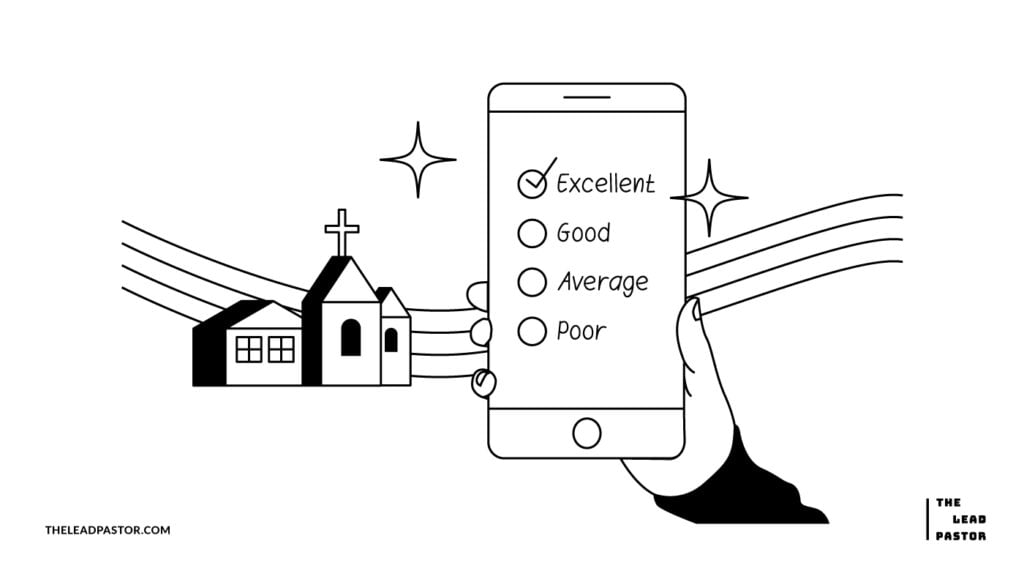My grandfather founded Elora Road Christian Fellowship before I was born, and my dad took over as lead pastor in my early teens. Some of my earliest church memories are 10-year-old Josh straightening chairs before ERCF's Friday night services. Since those early days, I’ve held many leadership roles (in several churches) over the past 20-ish years: greeter, usher, youth volunteer, kids’ church leader, web director, youth leader, worship team volunteer, small group leader, and pastor. Each position is a vital part of a healthy, functioning church.
While there will be similarities between your church and mine (e.g., both of our churches benefit from excellent church management software), your church will have a different make-up and cross-section of needs than my church. This is normal; we serve different communities, demographics, and cultures.
With that caveat, most churches need about 15 positions filled to function most effectively. Perhaps these roles require part-time hourly roles; some may be volunteer positions, and others may require a full-time salaried role.
Today, I will break down those 15 critical positions in church organizational structures; we’ll cover key things to know and understand about what to look for in the hiring process for church ministry positions. We’ll also touch on what your local church might need when considering positions in your church.
Pastoral Positions In Church
Let’s start with the simplest church positions: the pastoral staff.
1. Lead Pastor/Senior Pastor
Across the board, this is one of the most straightforward positions in church organizations to recognize and fill. It’s also one of the most critical because the lead pastor (or senior pastor) is responsible for the direction and health of the church organization.
According to a 2019 study by Barna, roughly 26% of pastors are bi-vocational, meaning they work full-time somewhere else in addition to their pastoral role.
Compensation considerations:
- Sometimes part-time and bi-vocational
- Often full-time, sometimes also bi-vocational
2. Executive Pastor
The executive pastor role is relatively new to the world of church jobs. This role can be defined as a type of associate pastor, but it can also be defined as a pastoral role that focuses on church business management. This allows business and organizational types to thrive in a pastoral setting, while a lead or senior pastor can thrive in shepherding roles.
An executive pastor also functions similarly to a lead pastor, so ensure you don’t have overlapping job descriptions for these roles.
Compensation considerations:
- Seldom volunteer and/or bi-vocational
- Sometimes part-time and bi-vocational
- Often full-time, sometimes also bi-vocational
3. Associate Pastor
Generally, the ‘associate pastor’ supports the lead/senior pastor by taking some responsibilities off the lead pastor’s plate. The exact responsibilities will depend on the skill set of the associate pastor. In some churches, an associate pastor may function as an executive pastor. Alternatively, they might oversee youth or children's ministry. They often manage staff, explore fundraising opportunities, and help with the preaching load. However, they might also help with administrative tasks (bookkeeping, volunteer management, etc.)
Compensation considerations:
- Rarely volunteer and bi-vocational
- Sometimes part-time and bi-vocational
- Often full-time, sometimes also bi-vocational
4. Missions Pastor
There is a movement in churches across North America to focus on the ministry of multiplication and planting new churches. Designated missions pastors focus on outreach, evangelism, and creating a culture of discipleship. Some associate pastors fit this role, but having a designated pastoral staff member focusing primarily on evangelism and missions is becoming more common.
We’re seeing that many churches are taking two paths to hiring missions pastors: hire them as missionaries, which means they need to do their own fundraising (less common), OR hire them as salaried positions (most common).
Compensation considerations:
- Sometimes asked to fund their own salary
- Rarely part-time and bi-vocational
- Occasionally full-time, sometimes also bi-vocational
5. Youth Pastor
The youth pastor is a fundamentally important role, as a strong youth group can drive church growth. Many of us pastors experienced a youth leader’s influence; perhaps one led you to Christ or helped you discover your call to ministry. Generally, the youth ministry leader or youth pastor works with teenagers and young adults.
Compensation considerations:
- Sometimes, volunteer and bi-vocational
- Often part-time and bi-vocational
- Sometimes full-time, occasionally also bi-vocational
6. Children’s Pastor
From Sunday School to programming, organizing volunteers, and Christian education, this role is one of the most vital positions in any church that focuses on growth and evangelism in its community. A church with a vibrant children’s program WILL grow. Kids who want to go to church can often convince less-enthusiastic parents to attend.
As with all positions, carefully consider your staffing budget, staff member makeup, and church organizational goals. Then, hire appropriately based on how you want to handle the role of children’s ministry in your church.
Compensation Considerations:
- Sometimes volunteer and bi-vocational
- Often part-time and bi-vocational
- Sometimes full-time, rarely bi-vocational
7. Worship & Music Ministry
Depending on how your church or denomination functions, you may call this person the music ministry director, worship leader, or worship pastor. Either way, they serve a critical role in the church’s life and should be considered part of the leadership team, no matter the job title. Their primary tasks are centered around leading the congregation in musical expression of worship, typically during Sunday Services.
For many churches, this includes organizing the worship team schedule, training and developing the volunteers’ musical gifts, and selecting music that supports the church’s vision and mission. The leadership of this ministry will likely also oversee the tech and audio/visual side of ministry.
Compensation considerations:
- Sometimes volunteer and bi-vocational
- Often part-time and bi-vocational
- Often full-time, rarely bi-vocational
Administrative Positions In Church

Every church needs someone to help keep everything moving in a positive direction. Church administrators are the grease that makes the wheels turn smoothly. These positions in the church are critical to a church’s success,. Below, we will outline some duties performed by these administrative positions in churches.
8. Church Administrator
These are the people who make it all happen. From weekly emails to handling phone calls to managing the event and program calendars: it all falls under the administrator’s job description. One of the best tools in a church administrator’s toolbox is church management software, which (when implemented well) can dramatically increase an administrator’s capacity by automating mundane, manual, repetitive tasks.
Compensation considerations:
- Often volunteer
- Sometimes part-time
- Rarely full-time
9. Pastoral Care Support Staff
Including a pastoral care position in the administrative duties might seem strange, but this role involves being incredibly organized. People need pastoral care at any time, day or night, and various needs can pop up at a moment’s notice. A pastoral care staff support member sometimes does little of the actual pastoring and, instead, focuses on scheduling. While it isn’t one of the most common positions in the church, it is becoming necessary as our culture becomes more focused on online experiences that can leave us feeling isolated.
Compensation considerations:
- Often consists of a team of volunteers, also all bi-vocational or retired
- Rarely part-time and bi-vocational or otherwise retired
- Rarely full-time, occasionally bi-vocational or otherwise retired
10. Community or Small Groups Leader
A few decades ago, the small group model for churches took off and quickly became the norm for most churches, especially in North America. Creating positions in the church for those who oversee the variety of community or small groups within a church was a natural conclusion to these changes.
Creating community calendars of events, organizing programming, and even creating curriculum for small groups are all part of the tasks performed by those individuals in this administrative role.
Compensation considerations:
- Sometimes volunteer
- Often part-time
- Rarely full-time
Financial Positions In Church

While the finance roles, jobs, and positions in churches could be part of the numerous administrative duties and roles of a local church, they also deserve their own spot on this list. Churches may outsource these roles entirely, so keep that in mind as you consider compensation.
11. Bookkeeping
Preparing church financial reports, balancing out the checkbook and preparing for tax season are important for non-profit organizations because they follow stricter rules than some other businesses. Some churches bring dedicated bookkeepers on staff or may outsource their bookkeeping. It is possible to have volunteers for small churches. However, church finances are critical: get the best help you can afford.
Compensation considerations:
- Can be outsourced, which is becoming more popular to save money with small-to-mid-sized churches
- Sometimes be considered volunteer work
- Often part-time
- Rarely full-time
12. Payroll/HR
Few churches invest in human resources, delegating many HR-type tasks to church leadership. However, it’s worth considering having dedicated payroll and HR staff members. Many church leaders have not received training on appropriate workplace management techniques, so unhealthy and downright toxic behaviors can occasionally pop up in churches. Some church leaders use volunteers or outsource HR departments and systems.
Compensation considerations:
- A committee of volunteers can sometimes handle these needs
- Sometimes part-time
- Often full-time
Maintenance Positions In Church

Church property management runs under the radar, but when you think about it, this role is easily the most visible job on this list. The first thing first-time guests will see is the building and the grounds. Those looking up your church online will see pictures of the building, grounds, and interior, which is why maintenance positions in the church are so important.
Whether looking at the church’s exterior or interior, finding the right people to manage its property is important.
13. Grounds/Property Manager
The grounds or property manager is responsible for maintaining the landscaping, keeping the exterior building clean, and maintaining equipment on the property. They ensure the outside of the building is beautiful, and the land around the building is functional for all services.
This position can be outsourced (i.e., mowing, caring for shrubs, trees, etc.) or overseen by a team of volunteers. Increasingly common is a combination: hire a maintenance staff person who supervises a team of volunteers. This position is often seasonal, depending on the off-season needs.
Compensation considerations:
- Often a combination of outsourced landscaping and staffed for other job duties
- Sometimes part-time
- Rarely full-time
14. Facility Manager
While the difference between a property manager and a facility manager can be blurry, it generally comes down to where they’re focused. Facility managers are often focused on the building’s interior, while property managers are generally focused on the exterior.
For this reason, church facility management is vital. These staff members make sure everything is maintained and functional. From fixing toilets to patching drywall, the work is never-ending for facility managers, which is why many of these roles are full-time staff members.
Compensation considerations:
- Occasionally outsourced
- Sometimes part-time and certain tasks are outsourced
- Often full-time while working with contractors on bigger projects
15. Janitorial & Custodial
If you’ve ever walked into a sparkling clean and fresh-smelling sanctuary on a Sunday morning, you can thank your janitorial and custodial staff. They keep everything clean and freshly prepared for a beautiful worship service, so dirty carpets or nasty toilets don’t detract from your Sunday morning experience.
Every church handles these types of jobs differently, so you can be flexible based on your needs and budget restrictions.
Compensation considerations:
- Often, a combination of volunteers and the options below
- Sometimes outsourced
- Sometimes part-time
- Rarely full-time
15 Hiring Decisions You Are Ready For!
Now that you know what positions in church exist and make sense for your congregation, you can start building a team of leaders exactly fit for your local church.
Whether you are looking at making a pastoral, administrative, financial, or even maintenance hire for your church leadership team or staffing, you are better equipped now. It’s good to know your options and what the industry standards are for each hire, too.
Now that you know what positions in church exist and make sense for your congregation, you can start building a team of leaders exactly fit for your local church.
Other Practical, Applicable Resources:
- What Every Lead Pastor Should Know About Church Metrics
- How to Handle Criticism (and Defuse Your Critics)
- How to Choose Church Management Software
- Church Financial Management 101: Best Practices, Tips, and Annual Calendar
Subscribe to The Lead Pastor Newsletter
To continue learning about the practical strategies, insights, and tactics from other pastors working in the trenches of ministry, join our newsletter. We'd love to have you!


